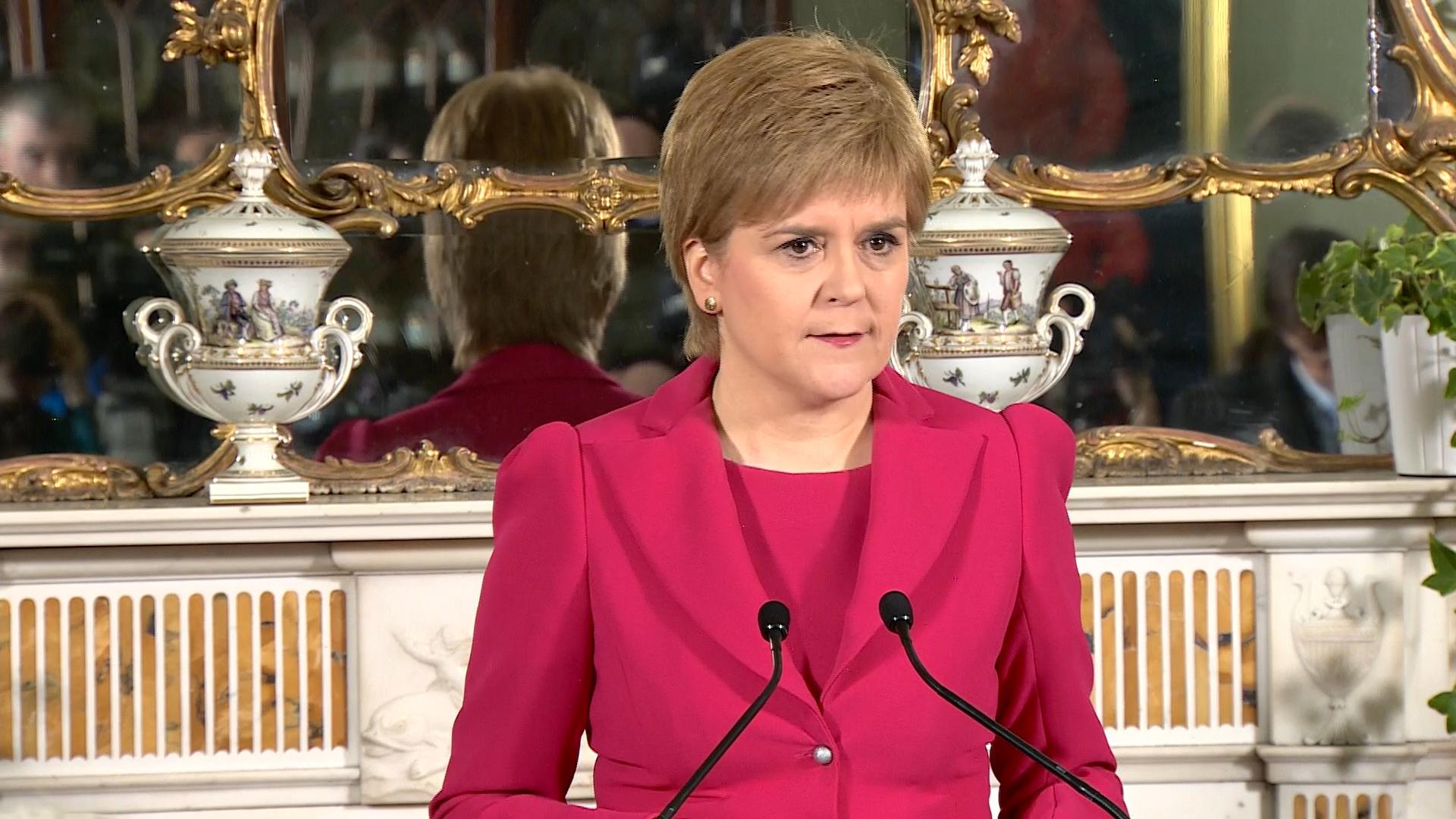Single market becomes SNP priority over indyref2
- Published
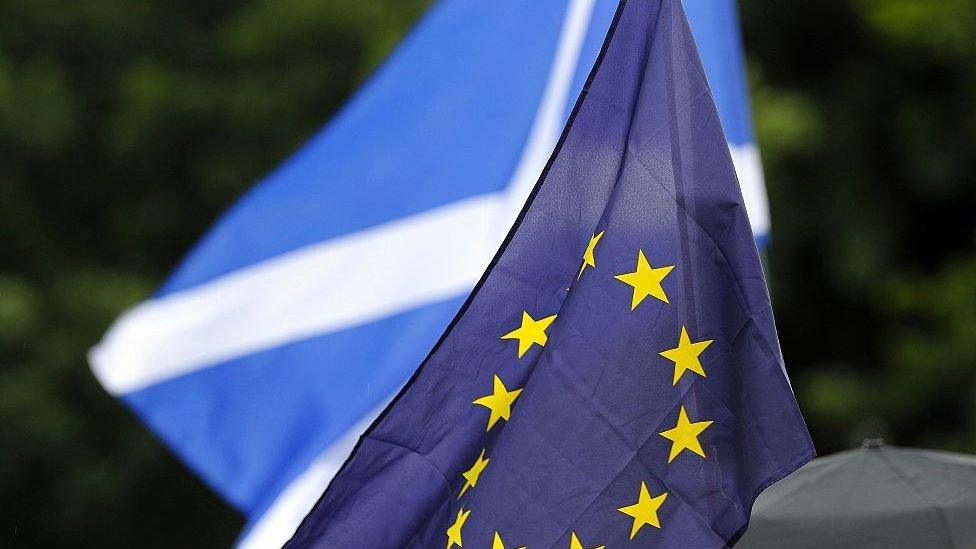
Nicola Sturgeon says she is seeking a mandate to represent Scotland at the Brexit negotiating table
It is supposed to be the Brexit election.
Yet in Scotland, on the campaign trail, you're more likely to hear talk of independence.
The Conservatives have placed opposition to the SNP and their plans for a second independence referendum at the heart of their campaign.
Labour and the Liberal Democrats - partners with the Tories in the 2014 Better Together campaign - are making similar pitches.
Labour also take a swipe at Tory "austerity" and the Liberal Democrats at Tory plans for Brexit outside the single market.
Of the four parties in Scotland defending seats at Westminster, the one least likely to major on independence in this campaign is the SNP, even though it exists to achieve independence.
There's an obvious reason for that. Independence divides opinion and in any election the SNP wants to broaden its appeal beyond "Yes" voters.
This has worked successfully for the party in the past.
In 2015, the SNP said the election was not about independence, external and that it would seek further devolution of power with a view to Holyrood having "full financial responsibility".
In that campaign it positioned itself as the party best placed to "stand up for Scotland's best interests" at Westminster.
It secured its best ever election result, winning 50% of the vote, 5% above the level of support for independence in the 2014 referendum.
In this year's election, Nicola Sturgeon is once again offering the SNP as a "strong voice" for Scotland at Westminster against what they anticipate will be a Conservative government with a bigger majority.
However, the question of independence is unavoidable because it is only two months since the first minister demanded the power to hold another referendum.
Ms Sturgeon insists she already has a mandate from the Scottish Parliament for a referendum once the terms of Brexit are clear.
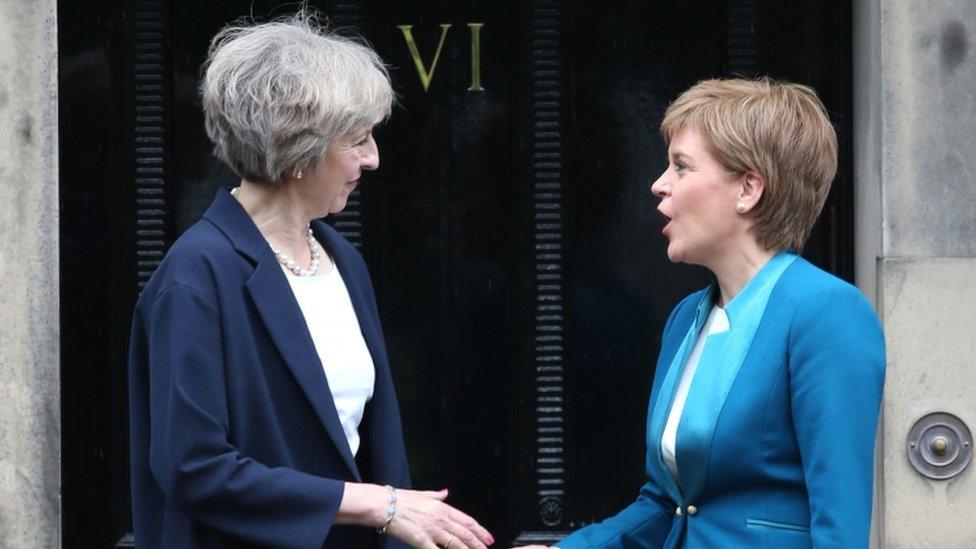
Nicola Sturgeon hopes the election result will make Theresa May reconsider a special deal to keep Scotland in the single market
She has also sought to redefine the mandate that she is seeking in this UK general election.
It is, she said, "to demand a place for Scotland at the Brexit negotiating table and the inclusion of the case for our place in the single market in the negotiating remit".
That is a "more immediate priority" than indyref2, Ms Sturgeon said.
The first minister demanded the power to hold another independence vote after Theresa May rejected her "compromise" proposals for a special deal to keep Scotland in the single market, external.
Now, she is arguing that the general election result could make the prime minister think again on that and, if so, presumably the demand for a Brexit-related independence vote would be withdrawn.
In the event that there is a second referendum, Ms Sturgeon has also said that the SNP may seek a "phased approach" to securing EU membership.
It is her clearest indication yet that if Scotland is already out of the EU, the SNP would initially seek Norway-style membership of the single market through EFTA and the EEA.
The Scottish Conservative leader, Ruth Davidson, has described this as "a cynical attempt to win back Leave voters who have deserted the SNP".
While 62% of those who voted in Scotland backed Remain, there were still more than a million Leave votes with perhaps one in three SNP supporters favouring Brexit.
Labour's Kezia Dugdale said the SNP had "quietly shifted away from a policy of immediate EU membership" and the Liberal Democrat's Willie Rennie accused the nationalists of "selling out" pro-Europeans.
The SNP would argue that it is simply acknowledging the possibility that the UK including Scotland has already left the EU by the time of any future independence vote.
By prioritising single market membership over independence (whether in or out of the EU) the SNP is also trying to appeal to a broad spectrum of the public regardless of how they voted on Brexit or independence.
- Published14 May 2017
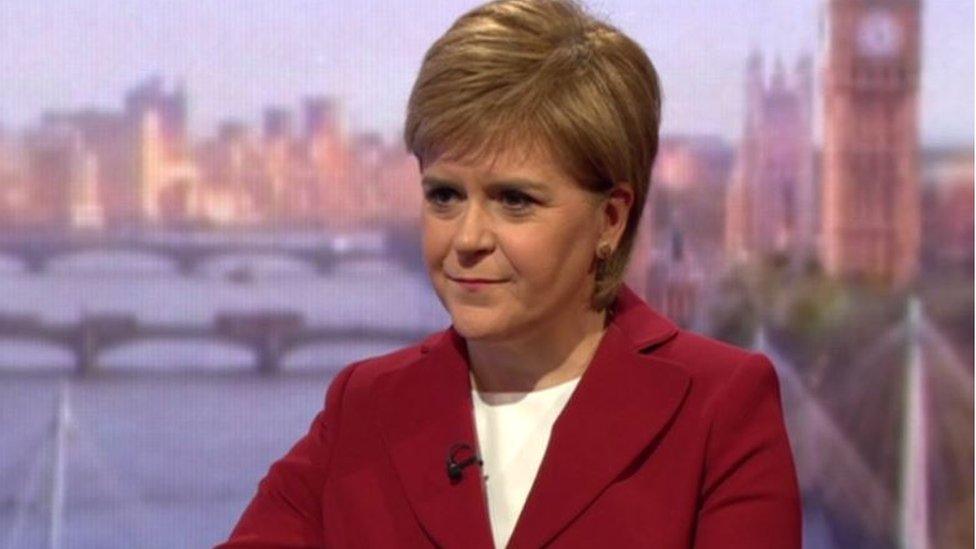
- Published16 March 2017
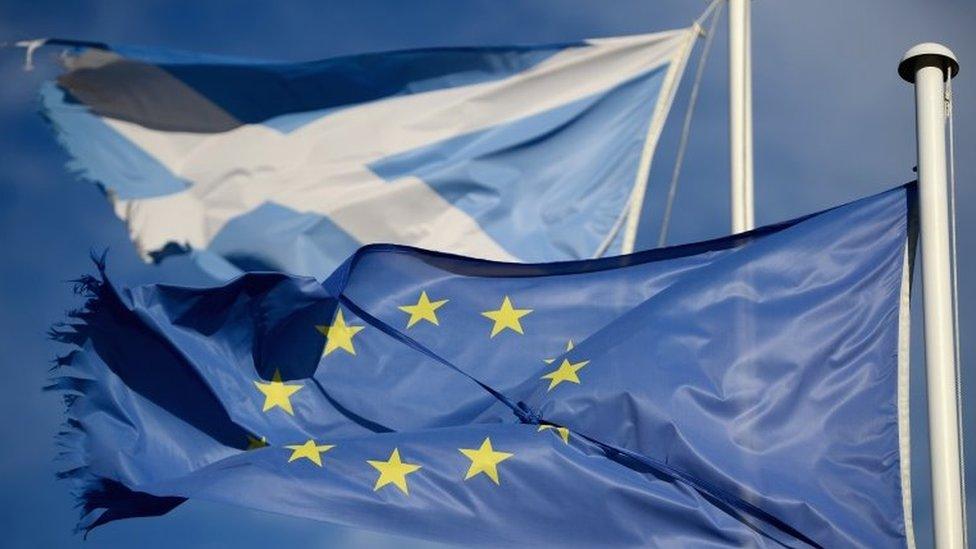
- Published15 March 2017
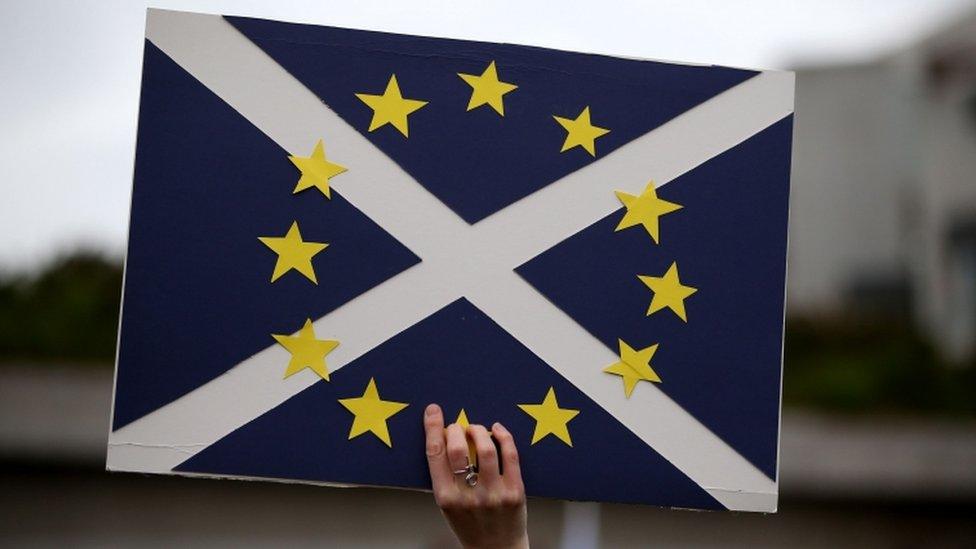
- Published14 March 2017

- Published13 March 2017
